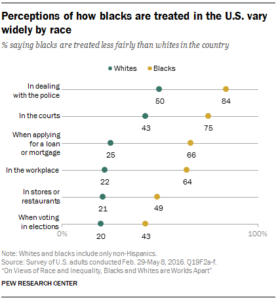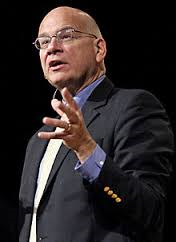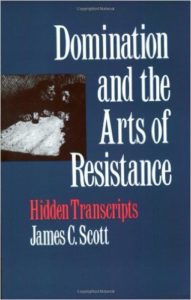Confessing Truth III: A Way Forward
Confessions emerge when a moment of status confessionis emerges, times when people have lost their way and are thus confused about the meaning and centrality of the Gospel, Jesus’ Good News. An argument could be made that this describes every moment in human history since Eden, for human sin is ubiquitous. While confusion assails us regularly, faithful people have felt called to voice new confessions at special times, times of crisis and kairos. The Presbyterian Church (U.S.A.) Book of Order notes that confessions arise
in response to particular circumstances within the history of God’s people. They claim the truth of the Gospel at those points where their authors perceived that truth to be at risk. They are the result of prayer, thought, and experience within a living tradition. They appeal to the universal truth of the Gospel while expressing that truth within the social and cultural assumptions of their time.[1]
Truth and its preservation[2] are the foundation on which efforts toward the development of new confessions are built. I present here some points to consider for inclusion in new confessions of truth. This is not an exhaustive list; I hope merely to suggest ways to think about confessing truth for those feeling called so to do.
The preservation of the truth
Any new confessional statement must center truth. Moments where the Gospel is at stake are by definition moments where truth is at risk. A strong acknowledgement of this situation and a call to correction are required.
In moments of status confessionis, confessions must state clearly the ways in which the truth of the Gospel has been lost, denied, or distorted. One way the Gospel becomes vulnerable is when people of faith and their leaders develop ways to use the faith to divide – to parcel people into categories of those who are in and those who are out. Politicians use this strategy effectively, at times to gain power, and at times to provide a calculated distraction. When the church uses these tactics, we are straying from the way of Christ. We must seek the Spirit’s help, then, to find our way back to truth. To confess and preserve truth means to discern where Jesus stands and to join him there.
How do we who are divided confess truth together?
Confessions emerge from the particularities of specific and boundaried historical situations. Some gain relevance and resonance beyond their moment, transcending time to expose truth to succeeding generations. Particularities in the US today include deep divisions in society and church. Division appears among people of differing races, cultures and ages. Much research has been published explaining how these divisions work to distract people from truth.

A 2016 Pew Study noted that the understanding people have of life in the US is very much impacted by their race or culture. Differences in perception based on race range from felt concerns about crime and differing levels of confidence in police protection, to views of people of other faiths, to beliefs about immigrants and immigration and many other issues. Race-based divisions in understandings are bolstered by divides in wealth, health care/insurance, employment, education, access to all these benefits and more. A similar attitudinal divide exists between younger and older people in the US on a host of issues. The prospects younger US citizens have for the benefits needed to assure access to “life, liberty and the pursuit of happiness” differ significantly from that of their parents and grandparents as well. Mainline Protestant US congregations continue to age, and are overwhelmingly white – which means that many US readers of this site worship with a majority of folks on one side of these divides. While much has been made of the strength of the white evangelical vote (over 80%) for Donald Trump in the 2016 US election, nearly 60% of white Mainline Protestants voted for Trump as well. These divides are hard for believers to discuss, in part because some white Christians see themselves as victimized in conversations about these issues and how they relate to faith. Recent events at Princeton Theological Seminary involving a prize to be awarded, then rescinded, to Tim Keller is a case in point. The facts:
-

Tim Keller Tim Keller is a pastor ordained in the Presbyterian Church in America, a conservative communion that formed from a break in the 1970s from the United Presbyterian Church in the USA (UPCUSA), in large part because of the insistence of the UPCUSA on the ordination of women. Keller pastors a church of over 5000 members in New York City, is a best-selling author, and has a Wikipedia page on his life and ministry. He is complementarian, which means he understands roles between men and women to be fixed as “leader” and “helper” respectively. Keller and does not believe women or LGBTQi candidates should be considered for ordination as pastors.
- Keller was named the recipient of the 2017 Kuyper Prize for Excellence in Reformed Theology by the Kuyper Center at Princeton Theological Seminary, a school of the Presbyterian Church (U.S.A.), the successor denomination to the UPCUSA. Negative response erupted as soon as the prize was announced,[3] pointing out how Keller’s beliefs about women, LGBTQi people and marriage are in opposition to PCUSA stances. The prize was eventually rescinded, and response was swift yet again, decrying Keller’s “marginalization”, Princeton’s perfidious hypocrisy and unfaithful Biblical views, and the sad state of affairs when a “leader” like Keller, who is clearly wildly “successful” in ministry is denied a platform. Those who “marginalized” Keller were roundly attacked, called “unchristian”, and—worse yet – called out as not being nice.
Whew.
This case demonstrates the great difficulty in confessing truth. We who follow Christ cannot find truth using the eyes of the world. Selling all possessions and giving to the poor, denying oneself and taking up the cross – these are not the road to worldly success. Yet, worldly success fascinates and attracts us. Those who have it, including Rev. Keller, are viewed by many in the church as specially blessed by God. Therefore, any suggestion that Keller has not been victimized is met with significant pushback. How then do we move toward confessing truth when the divides between us are so deep and so strong?
Only God knows the answer to that question. This is what I know: confessions arise from community, from the life of the body in moments when the body is broken, scarred, wounded, traumatized, and in need of the renewing power of the Spirit. I believe that such a moment has arrived.
 Let me be clear: new confessional efforts for today must be led by people who are outside the current and historic power centers for the church. Political scientist James C. Scott’s magnum opus, Domination and the Arts of Resistance, shows how people without power develop bicultural, bilingual skills to survive. In our time, fluency across divides will be a prerequisite for those who gather to see and to confess truth.
Let me be clear: new confessional efforts for today must be led by people who are outside the current and historic power centers for the church. Political scientist James C. Scott’s magnum opus, Domination and the Arts of Resistance, shows how people without power develop bicultural, bilingual skills to survive. In our time, fluency across divides will be a prerequisite for those who gather to see and to confess truth.
Naming lies
Any faithful work toward confessing truth must include the naming of lies. Every political campaign in history has included departures from truth. The 2016 campaign, and in particular the campaign of Donald Trump, went far beyond what US voters had experienced before. Trump has made a career of lies–about his business, his wealth, his expenses and his contracted obligation to those who have worked with him on projects. He has been politically active in spreading lies, most infamously about a case that came to be called the “Central Park Five” and as founder and chief spokesperson for the “Birther” movement. His lying has not abated since he was inaugurated. He has lied about women, about immigrants, about Muslims, about his ability to bring coal jobs back, about being wiretapped, about his plan to ensure that everyone in the US will have GREAT – MUCH BETTER – health insurance and that it will cost us all less money, about the election results and how many people attended his inauguration – the list goes on seemingly interminably. Because he is the President of the United States, these lies have consequences nationally and internationally.
It is disturbing in the extreme to see the US President in this light. Concern moves to another plane when we realize how many people, and how many baptized Christians, believe him – or more disturbingly, who say it doesn’t matter that he is lying. That one politician would lie is not news. That so many believe and support lies puts much at risk. At base, what is at risk is truth.
The lies of public figures too often lead us to lie in the church, to accept the presence of lies in the lives of faith communities, and to deep and damaging conflict among believers. The polarization of our time forces people into camps and makes discussion with people on “the other side” into something many are unwilling to countenance. We are obligated to name lies for what they are, to be freed from their vicious power.
Naming Truth
As the naming of lies is important to those who follow Jesus, naming truth is also key. The truth in our time includes a growing acceptance of public incivility toward those with whom we disagree. When Rep. Joe Wilson shouted “You lie!” to President Obama during a 2009 address to Congress, people on both sides of the aisle professed shock and outrage. But incivility grew during the eight years Obama was in office – much of it pointed at the President and his family – and toward other people of color, during a time when white supremacist organizations experienced precipitous growth.[4] The campaign of Donald Trump was marked by violence, often encouraged by the candidate; incivility and assault have continued at post-inauguration rallies.

Those who seek to confess truth must meet lies with truth. A recent televised exchange between commentator Angela Rye and Joe Walsh, a talk show host, illustrates. Walsh had stated on Twitter that Obama was held to a lower standard because he was Black. Rye’s response named the lie and met it with truth. The fact that this exchange happened between an African-American woman – a person of less privilege – and a white man – a person with more privilege – both complicated the discussion and sharpens the urgency of truth being named, in the same way that the response of people with less privilege (women and LGBTQi clergy and candidates for ministry) at Princeton spoke truth about the lies told by a person with great privilege. Those who gather to confess truth must find ways to name the truth and meet lies with truth.
Naming the Good News
Finally, any confession of truth must include clear naming of the Good News, and of Jesus Christ as its bearer and Lord. Doing this not only tells the truth about Jesus, but also tells the truth about our relationship to him and the truth he brings. Christ’s Gospel picks up the liberation of the Israelites from empire and its lies and opens that liberation up to all people. Truth is always a fight, and we must name who is on our side and is our leader in that fight.
[1] The Constitution of the Presbyterian Church (U.S.A.) Part II Book of Order 2015-2017. Office of the General Assembly, Louisville KY, F-2.01
[2] Ibid., The Great Ends of the Church, F-1.0304.
[3] See http://www.traci-smith.com/pts_timkeller/; https://www.christiancentury.org/blog-post/does-teaching-submission-encourage-abuse. Seminary president Craig Barnes reported receiving much correspondence from students, alums, and leaders across the PCUSA decrying the Kuyper Center’s choice.
[4] The election of the first Black US President produced an enrollment bonanza for white supremacist groups. The Southern Poverty Law Center monitors the growth and activity of these groups. See their reports from 2013 and 2016: https://www.splcenter.org/fighting-hate/intelligence-report/2013/year-hate-and-extremism and https://www.splcenter.org/fighting-hate/intelligence-report/2016/year-hate-and-extremism
